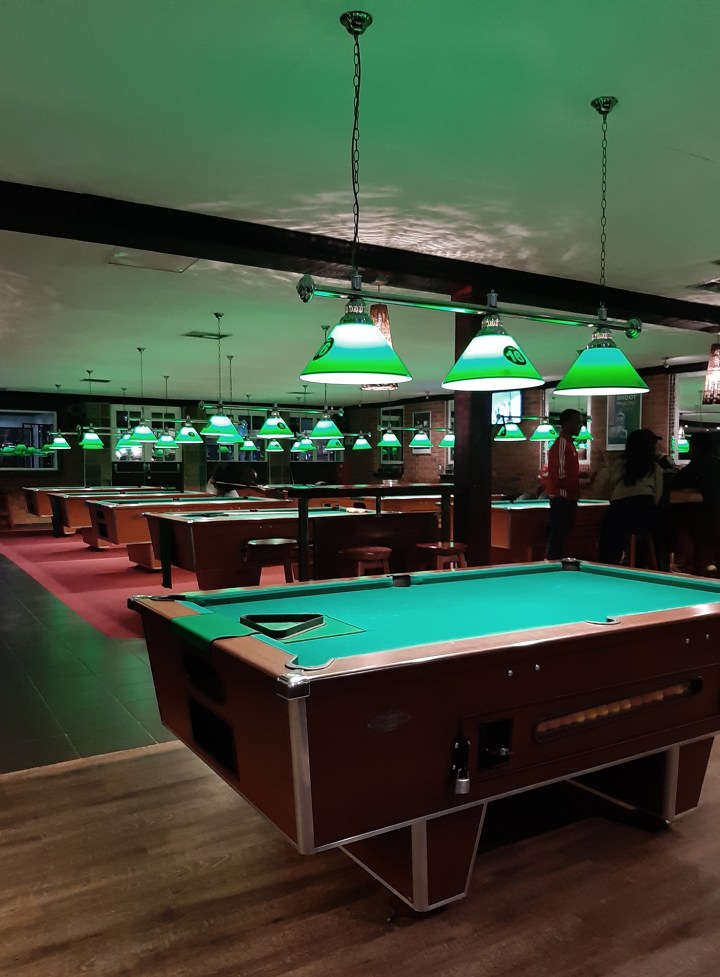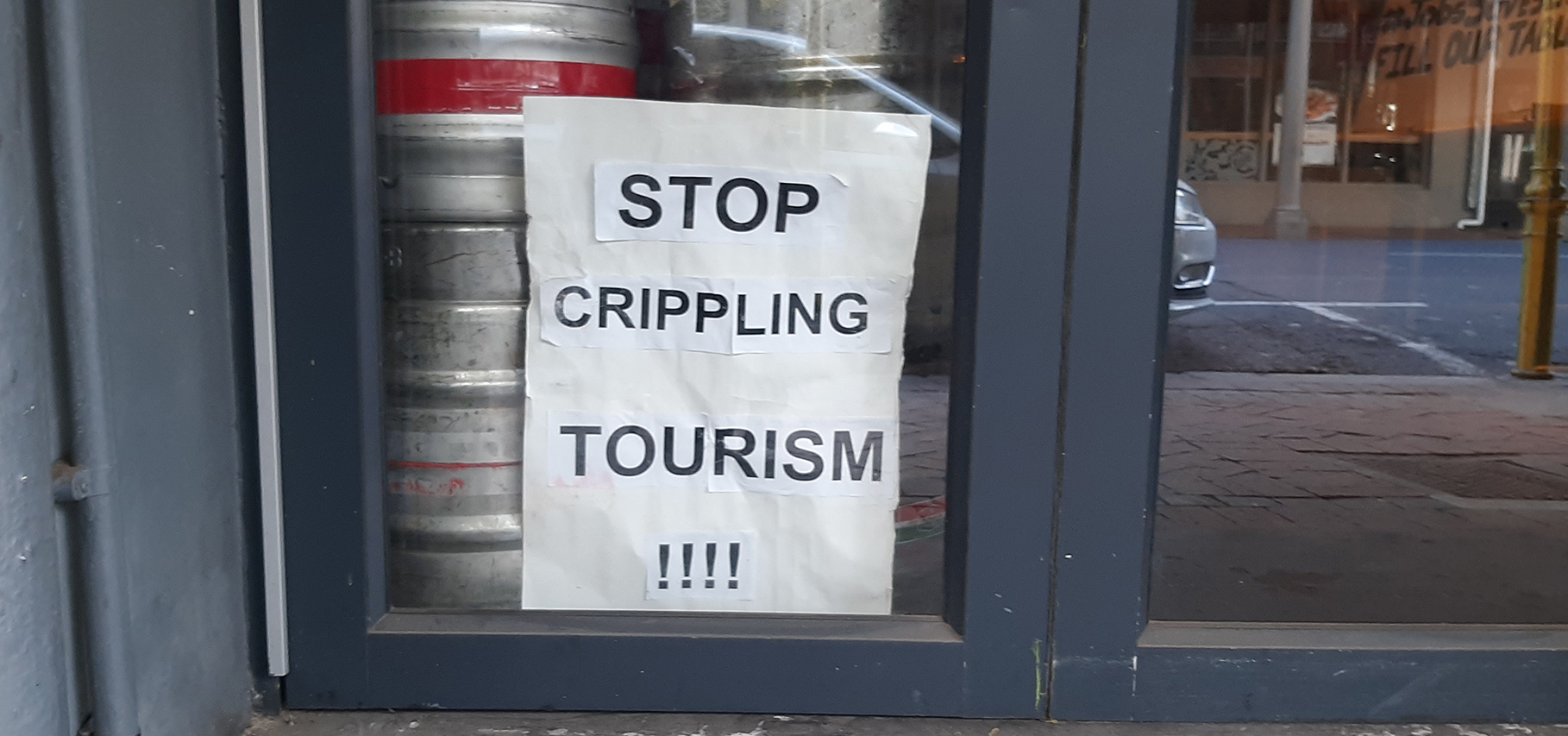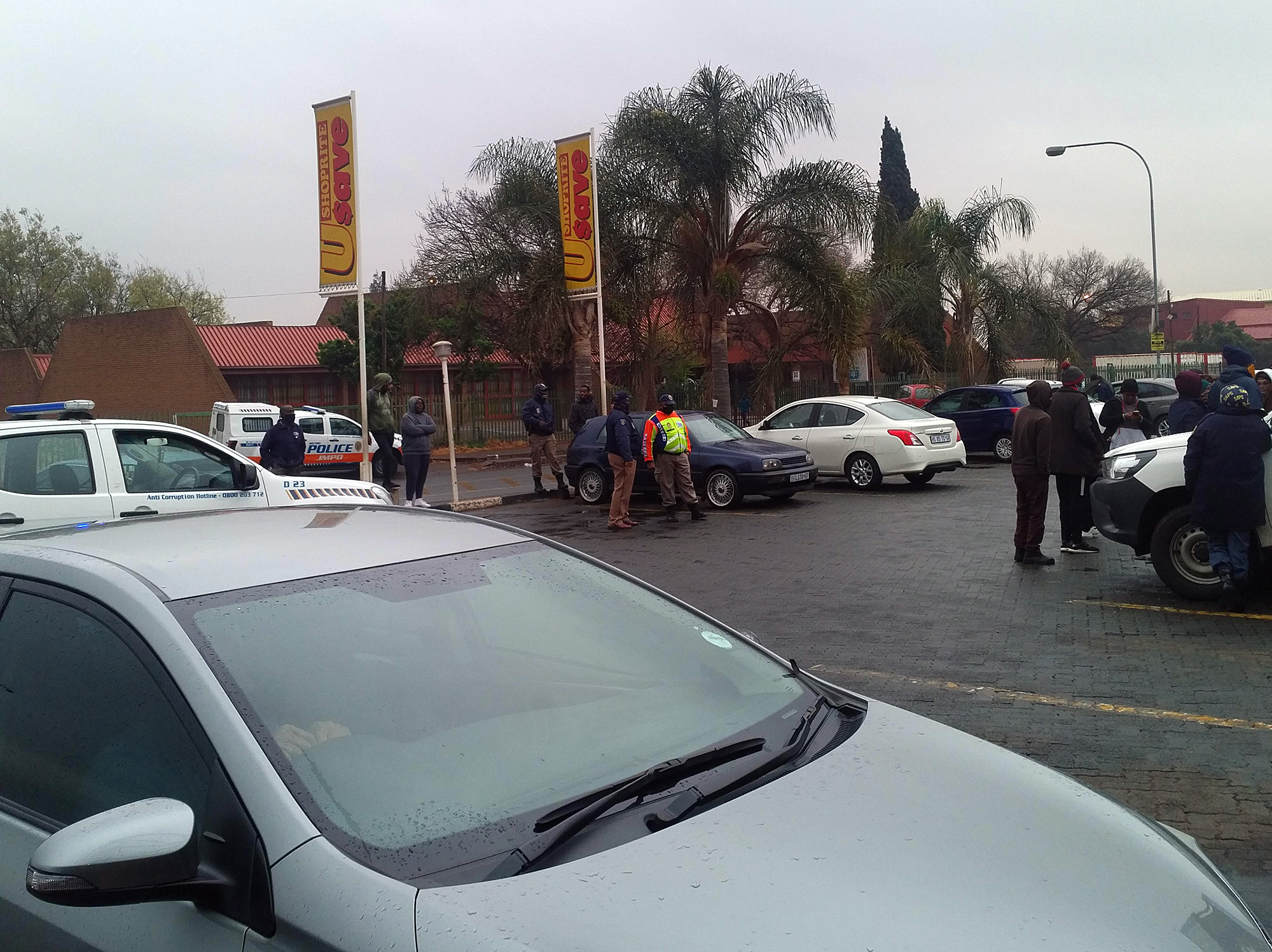LOCKDOWN REFLECTIONS: DAY 161
Level 2 brings a new ‘normal’ – and load shedding

South Africa went into a hard lockdown on 27 March 2020 in the hope of limiting the spread of Covid-19. As cases mounted, the lockdown was extended, then the country started slowly opening up. Currently at Level 2, these reflections are part of a weekly series that monitors life in lockdown in various neighbourhoods.
See Day 140 Reflections here.
Football’s final showdown
Johannesburg South, Gauteng: I am one of the many football fans waiting in anticipation for the season finale of the Absa Premiership on Saturday, 5 September 2020. In an ideal world, we’d be filling the stadiums and sports bars for the final showdown, but now, we’ll have to watch from the safety of our homes.
It’s been a memorable season for many reasons. We have watched Kaizer Chiefs blow what was at some point a 14–point lead. We’ve seen Mamelodi Sundowns take advantage of Chiefs faltering, following the restart of the season, after it was halted by Covid-19. Now, the two sit level on 56 points each, with the final action of the season set for Saturday afternoon.
The relegation battle has been a tense one as well, with all three of Limpopo’s representatives being candidates for the drop throughout the season. Barring a miracle on Saturday, the knell has all but sounded for Polokwane City. Black Leopards and Baroka will wait to know which of them will face the unenviable task of playing in the relegation/promotion playoffs.
With all this considered, it promises to be a riveting weekend of football action. – Yanga Sibembe.

Level 2 is in full swing but load shedding is still crippling businesses. (Photo: Sandisiwe Shoba)
With Level 2 comes load shedding
Rondebosch, Cape Town: Level 2 is in full swing on this side of the world. Despite the heavy rains, people can be seen milling about, walking their dogs, strolling with their children and exercising.
The malls and shopping centres are packed with customers – I made the grave mistake of going grocery shopping on payday. The UCT Jammies shuttle service is in operation again as some students have been allowed to return to residences where they will engage in remote learning. According to a statement sent out by the university during August 2020, a number of students with practical components to their coursework and select postgraduate students will soon be allowed to return. Things are definitely shifting to some level of normalcy around here.
Unfortunately, “normal” also includes load shedding. On the first day of Level 2, I took a trip to the shops and was disappointed to see many were forced to close their doors early because of load shedding. Outlets that hadn’t opened their doors for months had their excitement dampened by darkness. I can only imagine the horrific effect load shedding is having on our already struggling economy.
I think of a recent work assignment trip to Long Street where under Level 3, it had become a semi ghost town. Speaking to a few shop owners, there was optimism that Level 2 would bring a glimmer of hope with bans lifted on inter-provincial travel and the sale of alcohol being allowed. But load shedding surely brings a new set of challenges. It’s sad to see the gremlins of the past shattering new hope for already struggling business owners. The pandemic hit hard and load shedding is making an already tough situation even tougher. – Sandisiwe Shoba

Members of the Johannesburg Metro Police Department monitor nearby businesses as Chiawelo community members refused to disperse on 2 September 2020 as they intensified their power cut protests. (Photo Bheki Simelane)
Protests build amid electricity frustrations
Protea, Soweto: A number of communities in Soweto have been grappling with power cuts for months as Eskom continues to implement mitigating measures such as load shedding to ease the pressure on the grid.
The fury over electricity in Chiawelo, Soweto almost brought the Mangalani Shopping complex to a standstill on Wednesday, 2 September. Dozens of Chiawelo extension 2 residents have been protesting the power cuts for weeks on end. The protests have culminated in vandalism of road infrastructure such as robots and street signs. On Wednesday, community members, who had limited their protests to blocking roads with burning tyres, took hold of the shopping centre in the area. Johannesburg Metro Police Department (JMPD) members rushed to the scene to extinguish the anger and prevent damage to property. Businesses at the complex are powered by generators to stay afloat, while communities endure the stinging cold front, which has repeatedly hit the Gauteng province in recent months.
Throughout the protests, communities have been going on as if Covid-19 was no longer a problem despite officials warning that a second surge could be aggressive.
Over the past few weeks, Eskom has embarked on what it terms load reduction (or load shedding), to ease the pressure on the grid in congested areas and those areas where illegal connections were rife.
Community members said they were aware that among them, there were those who do not pay for electricity, but said they refuse to be punished for the sins of others. “How is it that other communities enjoy better distribution while we have remained in the dark for months? You don’t want to tell me that this is the only community where people steal electricity,” said Chiawelo resident Steven Vukeya.
Vukeya said the solution was for Eskom to engage with affected communities on a feasible repayment strategy that will not place a further burden on the people as the many crawl out of the economic devastation caused by Covid-19. – Bheki Simelane

Card games. (Photo Karabo Mafolo)
This past weekend, we had a games night
Mowbray, Cape Town: This past weekend was another ordinary weekend stuck in the house. Although the lockdown has eased and pretty much everything has opened up, I decided to stay indoors. My flatmate loves games and so on Sunday, we (my flatmate, her brother and I), had a games night.
This was the first time in a long time that I did something over the weekend that didn’t involve watching TV or reading a book. We listened to music, played games and spoke through the night.
It felt so good to be able to talk and not think about how much Covid-19 has taken from us. Even though lockdown has meant that I haven’t been able to see my friends and family as often as I usually do, I’m grateful that I don’t live alone and I get to unwind with my flatmates. – Karabo Mafolo

Views over the valley between Oranjezicht and sections of Bo Kaap, which is now covered in cloud due to recent rain and storms in Cape Town. (Photo: Suné Payne)
Six months of waiting in an ‘Unmotherly City’
Oranjezicht, Cape Town: September 2020, I’ve counted, marks six months of lockdown and what a way to start it – cold, wet and windy in Cape Town. Over the past few days, I could not see the views of Signal Hill in the distance, or the lights coming from across the valley because it has been raining heavily in the city.
Heavy downpours met with constant rain. Or like someone on Twitter said: “the eviction order for the City of Cape Town”, which made me sad. I think of the group of homeless people living in a park nearby, not harming anyone and keeping the area clean, taking care of their dogs while the local Whatsapp group judges them constantly. I wonder if they’ve got shelter besides their tiny little tent.
I think of shack dwellers and the damage their shacks are enduring. I think of those who are occupying private and public land, needing a refuge from the elements. During this lockdown, occupiers have been labelled as “land invaders”, all because they’ve been occupying spaces because they have no other alternative due to unemployment and the high cost of living. But the City – the one that cares for you, calls them invaders. The City that can’t even provide their promised sandbags?
Over the past few months, I’ve witnessed the city being uncaring towards poor, black people. How many times do residents need to remind the City that they are accountable for illegal evictions?
As a resident, how many times has the sewage drain been blocked in my street in Delft, without the City coming to fix it and then blaming the residents, without educating them? Every time it rains, the smell of putrid sewerage stays in the air for weeks. But in my other suburb of Oranjezicht, the City works for you. Drains are never blocked and when it rains, wind-blown trees get fixed quite quickly, but in Delft, we wait for days just to get someone to fix a broken sewage pipe. – Sune Payne DM


















 Become an Insider
Become an Insider